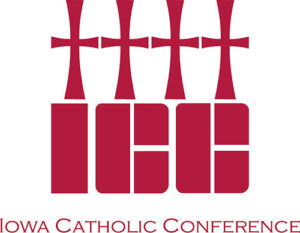
The Medicaid health insurance program is returning to normal eligibility and enrollment after the end of the COVID-19 public health emergency. During the emergency, states were required to maintain enrollment of nearly all Medicaid enrollees, regardless of whether they were still eligible. This meant that some people who were no longer eligible for Medicaid continued to receive coverage. States are now able to terminate Medicaid enrollment for individuals who are no longer eligible, according to the Iowa Catholic Conference (ICC), the public policy voice of Iowa’s bishops.
Many thousands of people are losing Medicaid coverage due to a lack of eligibility or finding coverage elsewhere but others are being dropped due to confusion, red tape or not returning paperwork. People who are eligible should be able to retain coverage. The ICC encourages Medicaid recipients to watch their mail closely. View a video on the ICC website (iowacatholicconference.org) for more information or call (800) 338-8366 for member services.
Support WIC
Congress is home for the August recess. When members return to Washington, D.C. they will need to pass bills that implement the nation’s budget for the next year. Now is the time to remind them that society can and must do more to protect and care for both women and their children. Providing adequate support for the Special Supplemental Nutrition Program for Women, Infants, and Children (WIC) will do just that by providing healthy food and nutrition support for vulnerable moms, infants and young children.
Visit the congress.gov website to get the email addresses of your Congress members and ask them to continue the long history of bipartisan support for WIC. The program needs adequate resources to serve all eligible participants with food that meets their nutrition needs, including the current benefit for fruits and vegetables.
Pregnant Workers Fairness Act
The U.S. Equal Employment Opportunity Commission (EEOC) released proposed regulations implementing the Pregnant Workers Fairness Act. Bishop Michael F. Burbidge of Arlington, Virginia who chairs the U.S. Conference of Catholic Bishops’ (USCCB) Committee on Pro-Life Activities, responded with the following statement:
“We supported the bipartisan Pregnant Workers Fairness Act because it enhanced the protection of pregnant mothers and their preborn children, which is something that we have encouraged Congress to prioritize. The Act is pro-worker, pro-family, and pro-life. It is a total distortion to use this law as a means for advancing abortion, and the complete opposite of needed assistance for pregnant mothers.”
“The Equal Employment Opportunity Commission’s proposed interpretation of the Pregnant Workers Fairness Act to include accommodations for obtaining an abortion is wrong and contrary to the text, legislative history, and purpose of the Act, which is to help make it possible for working mothers to remain gainfully employed, if desired, while protecting their health and that of their preborn children. We are hopeful that the EEOC will be forced to abandon its untenable position when public comments submitted on this regulation demonstrate that its interpretation would be struck down in court.”
The Farm Bill
Congress is also working on the 2023 Farm Bill. Urge members of Congress to ensure protection and funding of key food security programs including SNAP (food stamps), Food for Peace, McGovern-Dole Food for Education, Food for Progress, and Farmer-to-Farmer.
SNAP helps feed people living below the poverty line, while the international programs keep famine at bay, improve the lives and livelihoods of chronically food-insecure communities, help school children excel in their studies and leverage the expertise of American farming volunteers to improve food security.
Support our Afghan neighbors
It has been two years since the U.S. withdrawal from Afghanistan and the harrowing scenes that captivated the world as aircraft rushed to depart its capital city of Kabul. Tens of thousands of Afghan nationals have now been resettled in communities across the United States, many of whom served alongside U.S. service members. The Afghan Adjustment Act (S. 2327/H.R.4627) could help provide a pathway to real and lasting safety. Please contact your members of Congress in support.
Finally, the Iowa Supreme Court will hear the state’s appeal on the blocked “fetal heartbeat” law passed last month. A decision is expected by the end of June 2024. The law would prohibit abortions after a heartbeat can be detected.









